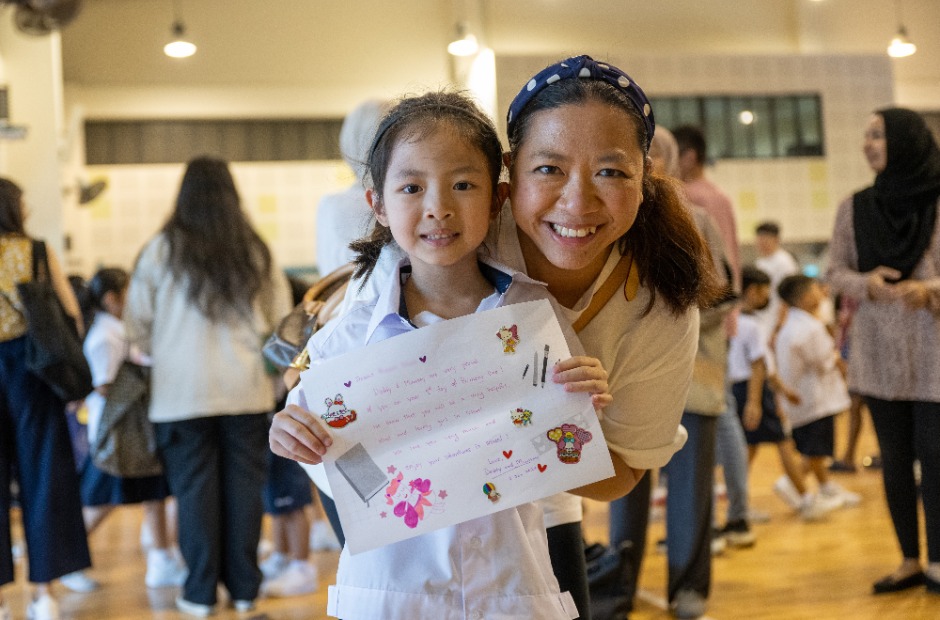Parents, “Don’t Stress” the First Day of School!
30 Dec 2008
You could call Mrs Pat Chong a mom of many firsts.
Many first days, that is. For when it comes to preparing a child for his or her big start to life in primary school, Mrs Chong could claim to know a thing or two. The 40 year-old administrative officer at a local polytechnic is a proud mother to five children aged 3 to 13.
Start early
It starts even before the beginning of the school term, when Mrs Chong sits down with her children to talk about the choice of primary schools they have. “We involve the children by going to the different schools together, giving them a feel of the place and allowing them to have a strong say in the final decision,” explains Mrs Chong. She believes this step gives her kids a sense of ownership over the choice they made, which will in turn help them feel less anxious on the first day of school.
Mrs Chong also points out that primary school hours are much longer than pre-school hours. Thus, children are expected to function more independently and responsibly. For instance, they would be expected to copy down what teachers had said and pack their own school bags.
Hence, Mrs Chong is always on the lookout for opportunities to help her children become more independent. For example, she lets them make orders and requests at fast food joints and also gradually reduces her children’s afternoon nap time to prepare them for primary school hours.
Communicate about your child’s needs
Mrs Chong believes that communication between parents and the school can go a long way in helping children adjust to life in primary school, especially if a child has special needs. Her eldest daughter, Gillian, has Attention Deficit Hyperactivity Disorder (ADHD) and dyslexia. “So even simple actions like copying from the board was a challenge”, she explains.
Mrs Chong stresses that parents should take the initiative to speak with the principal and form teacher to help them understand their children’s condition and mentally prepare them for certain situations that may arise. Talking to the school also gives the staff time to look out special arrangements such as assigning a Special Needs teacher to the child or allocating seats in the front row of the class.
Managing mindsets
The very first day, or even the first week of school, may run smoothly. But Mrs Chong cautions that parents should watch out for possible issues or unexpected problems that emerge over time.
In the case of Mrs Chong’s third child, Caitlin, school started very well. Caitlin’s friend from pre-school was in her same class, so she appeared to be adapting well at first. But by the third week, she suddenly revealed that she didn’t want to go to school and cried a lot. “This continued all the way to the third term of school”, says Mrs Chong.
But with the benefit of experience with her first two children, Mrs Chong handled this situation with calmness and composure. “I didn’t scold her,” she recalls. “I had a long talk with her and said if she was so unhappy, I would take her out of school. I also listed the pros and cons of going to school. She listened and then she said she would prefer to stay in school. Things were fine after that!”
From this experience, Mrs Chong realised that parents “should not mollycoddle their children too much”. But at the same time, they should be ready to listen and find out about the issue bothering the child and address it accordingly.
It may be hard work, but Mrs Chong sees a need to maintain a good balance between the child’s needs and the school’s requirements. “Support your child and speak up for him or her when necessary. But at the same time, do trust in the school and teachers,” she advises. “Parents should not just make demands or criticise. Instead, work with the teachers and keep the line of communication open.”
What’s Mrs Chong’s final tip on preparing for primary school? “Don’t stress about the first day of school!” she laughs. “Children can sense their parents’ anxiety and can react to that.”







